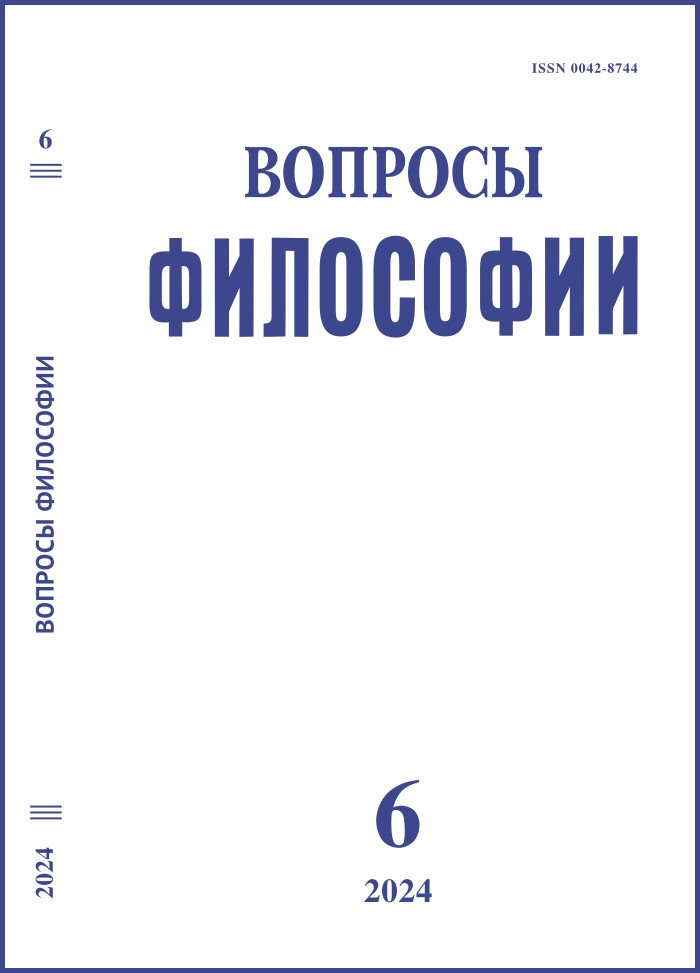Indirect Speaking: Images and Metaphors in Arendt’s Homage “Martin Heidegger at Eighty”
DOI:
https://doi.org/10.21146/0042-8744-2024-6-135-145Keywords:
Arendt, Heidegger, language and thinking, metaphor, storm of time, storm of thinking, intertextAbstract
Hannah Arendt’s report “Martin Heidegger at Eighty” is generally seen as a defensive speech, seemingly intended to honor his philosophical achievements at the end of his life and to mitigate the reputational damage caused by his past political mistakes. The personal relationship between Arendt and Heidegger is often cited as the reason for the disturbing fact that such a statement was made by a prominent scholar of totalitarianism. This article examines Arendt’s text from a new perspective, viewing it as a departure from Heidegger’s position rather than a celebration of it. The hypothesis is proposed by shifting the focus to the form of expression, which can provide insight into the content. The anniversary speech is filled with poetic imagery and contains numerous allusions to both literary and philosophical works. The article analyzes Arendt’s comparison of Heidegger with the “hidden king”, which has its roots in the Romantic tradition. The use of Novalis’s novel, from which the title was probably borrowed, contributes to the discovery of additional meanings. Arendt’s text presents a semantically rich metaphor, “the storm of thinking”, that can be deployed through a network of intertextual references. These references include the Socratic comparison of thought to an invisible storm, the Platonic image of the storm that appears in the finale of Heidegger’s Rector’s Speech, the “wind from paradise” that picks up Benjamin’s Angel of History, and the changeability of the cloudy sky from Rilke’s “Sonnets to Orpheus”. The metaphorical structure of Arendt’s essay is explored, reflecting her own understanding of the role of language in thinking and the importance of literary discourse

